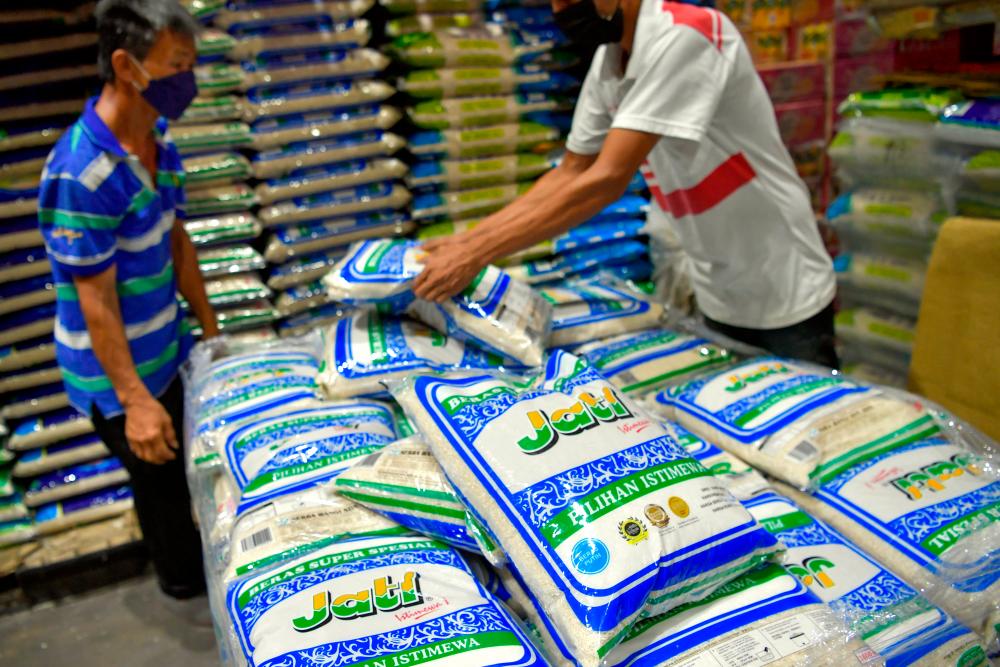KUALA LUMPUR: The drop in imported white rice prices that takes effect today needs to be enforced strictly to ensure that the government’s aim of making the country’s staple food affordable for Malaysians is achieved, various consumer associations said today.
Federation of Malaysian Consumers Associations (FOMCA) chief executive officer T Saravanan said the relevant authorities, especially those in charge of border controls need to be strict and ensure no one takes advantage of the price reduction, while Johor State Consumer Movement Association president Md Salleh Sadijo pointed out that the move showed that the MADANI government understood the plight of Malaysians and were doing its best to tackle the rising cost of living.
“Currently, rice prices abroad have breached RM38 and it is a big price difference in our country (after the price drop). We are worried there are parties who will resell by repackaging and smuggling it across the border,” Saravanan said.
Consumers Association of Subang and Shah Alam, Selangor (CASSA) president Datuk Seri Dr Jacob George emphasised that authorities should frequently monitor sellers, and advised consumers to play their roles by buying according to their needs.
“The reduction in prices will only bear results if consumers, especially those with big purchasing power, exercise restraint and not buy in bulk till it affects the middle class and the lower income groups.
“Don’t be greedy and engage in panic buying. We need to be disciplined so that we can achieve the aim of increasing people’s access to rice,” he said, adding that a purchase quota could be imposed if needed.
Meanwhile, academicians welcomed the price reduction, stating that it would reduce the financial burden of Malaysians.
Universiti Pendidikan Sultan Idris (UPSI) Economics Department Head, Assoc Prof Dr Zainizam Zakaria also expressed hope that businesses selling rice-based products would reduce their prices in tandem with the announced reduction.
“If businesses purchased stocks at old prices then they might not be able to reduce their product prices yet, but if they buy new stock at lower prices, then rice-based food product prices can be reduced to help consumers save,” he said.
Universiti Sains Islam Malaysia (USIM) Centre for Community Engagement and Industry Networking deputy director Dr Muhammad Iqmal Hisham Kamaruddin noted that even with the price reduction, local white rice was still cheaper than imported white rice.
“This move will help overcome the shortage of rice as we cannot fully depend on local white rice, so there is a need to import rice to fulfill domestic needs,” he said, adding that the government should also undertake the bigger task of figuring out a method to optimise national rice production to ensure that a sustainable supply of local white rice in the future.
The government’s move to reduce rice prices has been well-received by ordinary Malaysians, with retiree Abdul Rahman Ahmed, 79, of Pengkalan Chepa, Kelantan expressing his relief as reduced prices would go a long way in helping him afford the five kilogrammes of rice his family consumes weekly.
Housewife Haryati Mamat, 50, from Sabak Bernam, Selangor described the price reduction as timely as rice was the basic necessity for Muslims throughout the Ramadan month and the upcoming Aidilfitri festivities.
“We need to buy a lot of rice to prepare for Hari Raya. Besides the numerous family members who will gather at home, there are some delicacies that use rice, so it’s a relief to have lower prices,” she said.
The reduction of prices - between RM2 and RM3 - was announced by Agriculture and Food Security Minister Datuk Seri Mohamad Sabu yesterday after it was finalised during the National Action Council on Cost of Living meeting earlier in the day. -Bernama













